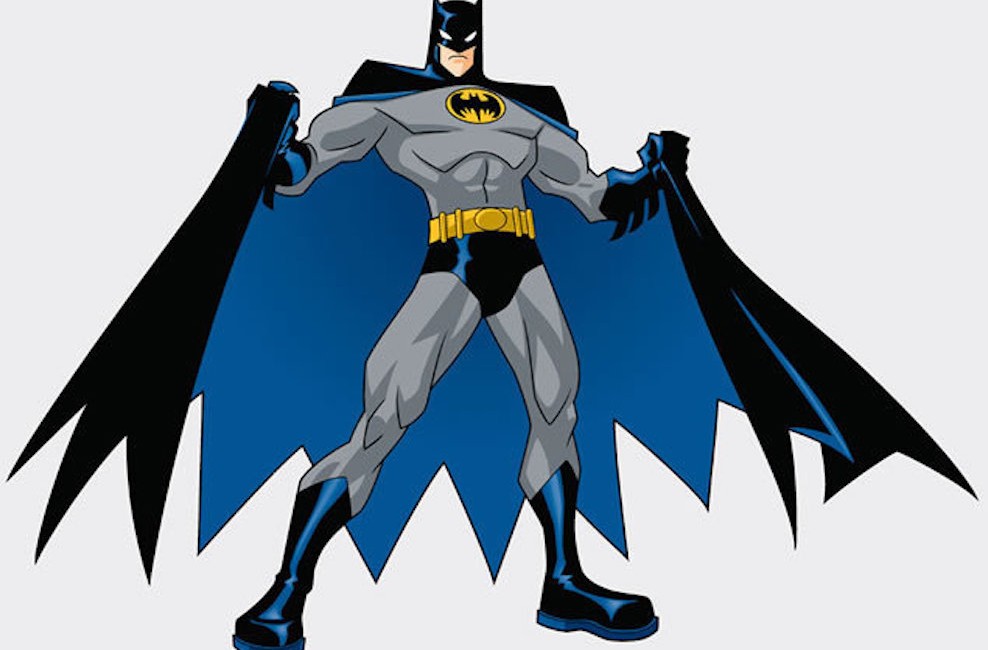“I was that annoying kid who always “actually knew” what they were going to do for the rest of their life… I wanted to become Batman!”
By Drew Simmons
I always knew what I wanted to do when I grew up. Now, when you ask any other kid or teenager about their career goals, they’ll also have an answer for you – astronaut, professional baseball player, pop star. But I was “different;” I was that annoying kid who always “actually knew” what they were going to do for the rest of their life. You know, the kind with all the little intricacies already figured out? It was simple: I was going to go through school, then college, graduate, and promptly become Batman. A couple years later, it became a cop. Then a fighter pilot. Then a psychiatrist… then surgeon… and on and on it went.
Eventually, a theme began to shine through – all of the choices that weren’t heavily influenced by Bruce Wayne, Bruce Willis, or Tom Cruise were in healthcare. Getting volunteer opportunities at a local hospital while in high school, in addition to pursuing a specialized curriculum, helped solidify that goal. Unlike the Batman pick, getting involved in healthcare wasn’t some passing interest, but instead a legitimate passion. I had experiences both in the classroom – via dual-enrollment human bio courses – and in a real healthcare setting, such as interacting face-to-face with the doctors, nurses, technicians, therapists, you-name-it, the boots on the ground providing care to those within our communities. These opportunities hammered home what I reallywanted to do was help others, specifically to care for their health. By the time I was applying to schools and enrolling in classes, I had toned down my previous zeal for planning the future, and began university courses knowing that I didn’t immediately have to worry about post-undergrad plans. I knew I could feel out how, exactly, I’d get into the industry over the next four years. I didn’t have to have it all figured out right away.
I entered my school’s College of Arts and Sciences with a pretty vague plan, taking some standard pre-requisites and electives, then letting it rip. After a year, though, I transferred into Biomedical Engineering (BME) in the aptly named School of Engineering and Applied Sciences. I had found that I wasn’t getting the experiences I needed in a more general curriculum, and the prospects in the years to come weren’t particularly promising either. Previously, I was able to learn intellectually in a classroom and practically in a workplace, but studying a subject in the liberal arts or social sciences proved to be too removed from these experiences for my liking. BME, as with other applied sciences and engineering disciplines, couldn’t be even remotely described as “removed” from real-life experiences.
BME allowed me to not only learn topics I was interested in, but also to immediately apply it in a meaningful way. Throughout my entire college career, it enabled me to seize opportunities that I otherwise would have had absolutely no business being near. Second year? I developed computer systems for early detection of infant hypoxia. Internship? I contributed to published research on cleft palate modeling. Third year? I literally built an EKG. Graduating? I developed decision systems to support treatment plan selection for cancer patients. Career? Healthcare IT systems became my field, where I work on everything from decision support systems for MRSA patients to implementing Medicare reporting across entire metropolitan areas.
That’s not what it’s all about, though. STEM is more than a résumé-building buzzword. The beauty of studying science, technology, engineering, and mathematics isn’t in the nuts and bolts, the technicalities, or the economics. STEM fields teach you to build, they teach you to create, they teach you to think about the world surrounding you in a fundamentally different way. The appeal of entering into STEM is that it empowers you to pursue your passions more than any other field of study. Studying STEM enables and compels you to push yourself to the fullest of your potential, to ultimately leave the world around you better than how you found it.
So why did I choose STEM? I just want to help people, and going into STEM was simply the best way to go after my passion. All the other cool stuff involved is just a bonus. Our tools may be different, but what I do today fundamentally isn’t too different from Batman after all. Like Bruce Wayne said, “It’s what I do that defines me.” And helping others is what defines us both.




